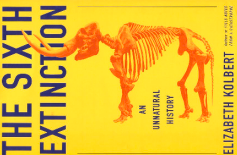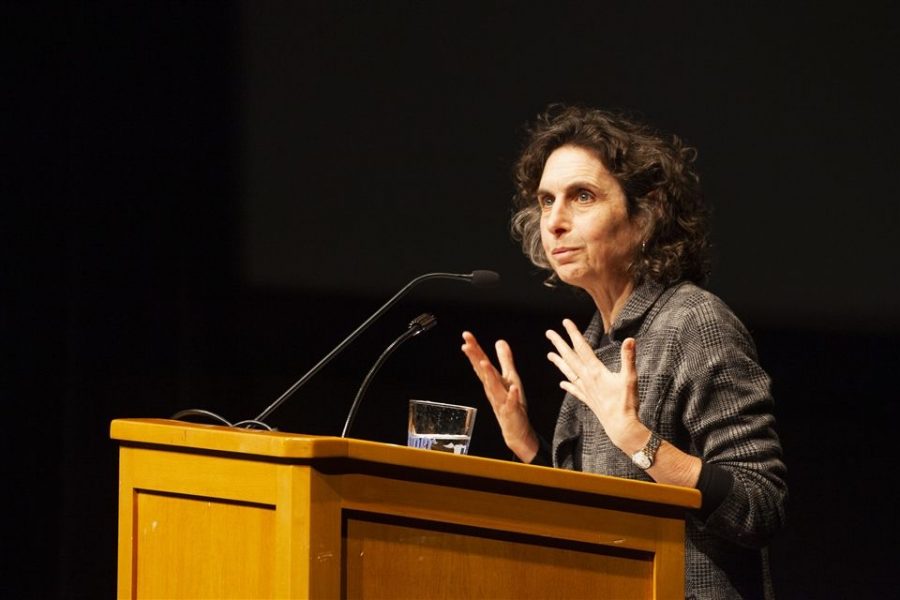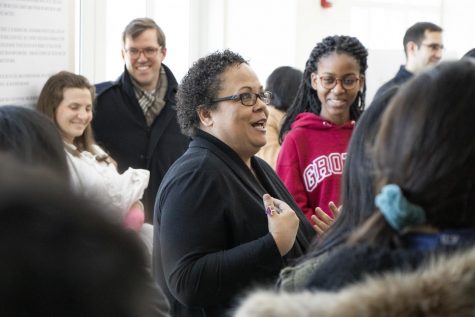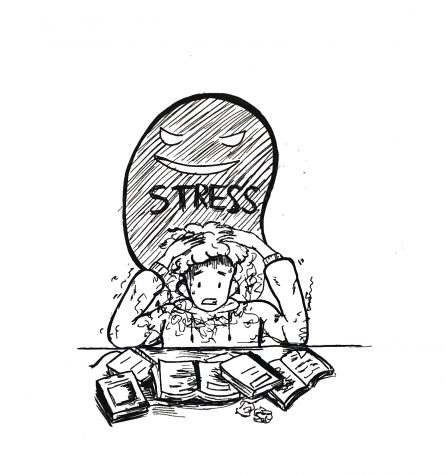Award-Winning Author Elizabeth Kolbert Visits Circle
On February 4, Groton welcomed journalist and Pulitzer Prize-winning author of The Sixth Extinction, Elizabeth Kolbert.
The content of Ms. Kolbert’s lecture focused primarily on the material outlined in her book: the five extinctions that have taken place over the course of millions of years and the sixth extinction that we are debatably immersed in currently. She described her work reporting on the process of reviving the Hawai’ian crow that was on the verge of extinction in 2002. After describing her studies of various endangered species, Elizabeth Kolbert moved on to talking about the climate crisis in more broad terms. She cited humanity’s biggest contributions to the looming sixth extinction: global warming, ocean acidification and forced transcontinental animal migration.

Ms. Lamont, a member of the Speakers’ Committee who was in contact with Ms. Kolbert prior to the talk, said, “We generally do not give any detailed guidelines to our speakers. Instead we explain what kind of school Groton is and what the audience will be like. For example, I tell all speakers that we are a coed school with grades 8-12, emphasizing that they need to remember that student comprehension and attention varies a great deal.” In this particular case, Ms. Lamont also “asked Ms. Kolbert to spend at least some of her talk explaining how journalists work and why good journalism is important,” considering that The Sixth Extinction was based on journalistic research.
After the talk, 143 students responded to a school-wide survey. Out of these respondents, 75.5% said they learned something new and approximately 49% of all respondents said that her talk led them to think about the climate crisis differently. When asked to rank Ms. Kolbert’s level of preparation, 79.7 percent responded with a 4 or 5 rating on a 5 point scale. Using a similar rating system, 69 percent selected a 4 or 5 when rating Ms. Kolbert’s delivery, and 92 percent rated her “perceived level of expertise” with a 4 or 5.
When rating their engagement with the talk, students from the sample were most likely to select a 3. Similarly, more students chose a 3 as opposed to any other answer choice in response to the question, “Did this speaker contribute a unique perspective that allowed his/her talk to go beyond information that could be found in a textbook or informative article? Rate the relevance of the speaker’s individual perspective in his/her circle talk.” In response to the engagement and “individual perspective” questions, respectively, 20 percent and 24 percent of students, answered with a 1 or 2 rating.
Head of the Sustainability Committee, Zoe Colloredo-Mansfeld ‘21 “found Ms. Kolbert’s use of graphics and facts to be engaging. She also presented a sometimes unheard side of climate change and helped add urgency and context to ongoing campus discussions.” Following Ms. Kolbert’s talk, students and faculty members partook in dorm discussion groups led by the Sustainability Committee and D&I members.
Josh Guo ’20, a D&I member who facilitated the discussion in LV’s dorm, appreciated the new discussion structure. He said, “I think the dorm is just a setting where kids (especially second formers) can feel far more comfortable expressing their opinions without fear of judgment. The kids have already built a nice rapport and dynamic with each other, so the discussion flowed well, with the second formers in particular all engaging in a mature, respectful manner.”
During these discussions, students wrote on color-coded sticky notes questions about the talk, ideas for individual contributions towards sustainability, and suggestions for changes towards sustainability at Groton. According to D&I faculty head Sravani Sen-Das, these sticky notes will be displayed in the forum so that community members can learn about the topics discussed within all discussion groups.











